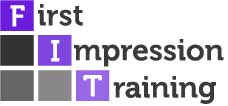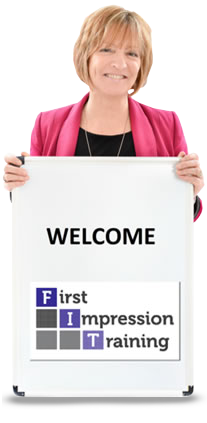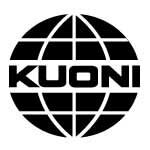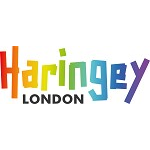Recruiting the right customer service representatives (CSRs) is critical for any organisation, as these employees are often the frontline of your organisation and play a key role in shaping customer perceptions and satisfaction. How they communicate largely determines how a customer FEELS about your business.
It makes perfect sense, therefore, that effective recruitment practices are in place to ensure that CSR’s possess the necessary skills, attitudes, and cultural fit to handle customer conversations and challenges efficiently and maintain high levels of customer satisfaction/delight.
Conversely, ineffective recruitment can lead to high turnover rates, increased training costs, and poor customer experiences, which can significantly impact a company’s bottom line.
According to a report by the Chartered Institute of Personnel and Development (CIPD), the average cost of recruitment per employee in the UK is £3,000. Additionally, research by Oxford Economics reveals that the cost of replacing a single employee can exceed £30,000, factoring in lost productivity and training costs. These statistics underscore the importance of investing in robust recruitment strategies to avoid the substantial costs associated with hiring mistakes.
Here at FIT we’ve helped many organisations create and develop new customer-focused cultures with training that encourages fresh attitudes and new behaviours. A natural progression of this training is to ensure that the recruitment process includes tools that identify and test for those ideal attitudes and behaviours from the outset so here’s a few strategies you might like to consider when testing the capabilities of new service team recruits:
- Behavioural Interviews: An obvious starter for ten is conducting structured interviews that focus on past experiences and behaviour. Ask candidates to describe specific situations where they had to handle customer complaints, resolve conflicts, or deliver exceptional service. Example questions: “Can you tell me about a time when you turned a dissatisfied customer into a satisfied one?” or “Describe a situation where you had to deal with a difficult customer and how you handled it.”
- Role-Playing Scenarios: Use job-specific role-playing exercises to simulate common customer service situations. This helps assess how candidates react in real-time to challenging scenarios, demonstrating their problem-solving skills, communication abilities, and emotional intelligence. Scenarios might include dealing with an angry customer, troubleshooting a product issue, or managing multiple customer inquiries simultaneously.
- Skills Assessments: Implement practical tests to evaluate specific customer service skills. This can include written tests on product knowledge, problem-solving exercises, and technical assessments for using customer service software or CRM systems. Online assessments and simulations can also be used to gauge a candidate’s typing speed, accuracy, and ability to navigate through various customer service tools.
- Situational Judgement Tests (SJTs): Use SJTs to present candidates with hypothetical customer service scenarios and ask them to choose the best course of action from multiple options. This helps assess their decision-making skills, judgement, and ability to prioritise tasks. SJT’s can be tailored to reflect the typical challenges faced in your specific customer service environment.
- Peer and Team Assessments: Incorporate feedback from existing team members by having candidates participate in group activities or team-based projects during the assessment process. Observe how they interact, collaborate, and contribute within a team setting. This approach not only evaluates their teamwork and communication skills but also helps determine cultural and personality fit within your customer service team.
- Customer Interaction Simulations: Set up live simulations where candidates interact with actual customers or experienced employees posing as customers. Evaluate their performance based on their ability to listen, empathise, and resolve issues effectively. This real-world test provides insights into how candidates handle pressure and unexpected situations.
- Problem-Solving Exercises: AI and interactive tools are being deployed to resolve many of the simple service tasks, which means our CSRs will be increasingly focused on more challenging customer conversations that fall outside automated/Bot capabilities. Therefore, it’s important to provide candidates with complex customer service problems and assess their approach to solving them. This could involve multi-step issues that require logical thinking, resourcefulness, and creativity. Analyse their problem-solving process, including their ability to identify root causes and propose practical solutions.
- Emotional Quotient (EQ) Assessments: EQ assessment is now becoming so much more relevant than IQ assessment in todays recruitments process and increasingly so in the customer service space. Use tools and assessments designed to measure emotional intelligence, to better evaluate a candidate’s ability to understand and manage their own emotions, as well as their capacity to empathise with customers. High EQ is often correlated with better customer interactions and conflict resolution.
- Technical Proficiency Tests: If the role involves using specific software or tools, administer tests to gauge the candidate’s technical skills. This could include CRM software, helpdesk platforms, or any other relevant technology. Assess their ability to quickly learn and adapt to new systems, which is vital for efficient customer service operations.
- Personality and Cultural Fit Assessments: Utilise personality tests such as the Myers-Briggs Type Indicator (MBTI), Colours, DAFT (our personal choice for CSR recruitment) to understand candidates’ personality profiles and work styles. Assess cultural fit by evaluating how well their values and attitudes align with your company’s culture and the customer service team’s dynamics. This can help ensure their long-term job satisfaction and retention in the role.
By implementing some/all of these strategies, you will significantly increase the likelihood of attracting and hiring capable candidates who will contribute positively to your customer service team, ensuring right-first-time recruitment and leveraging the substantial benefits of high customer satisfaction.


















